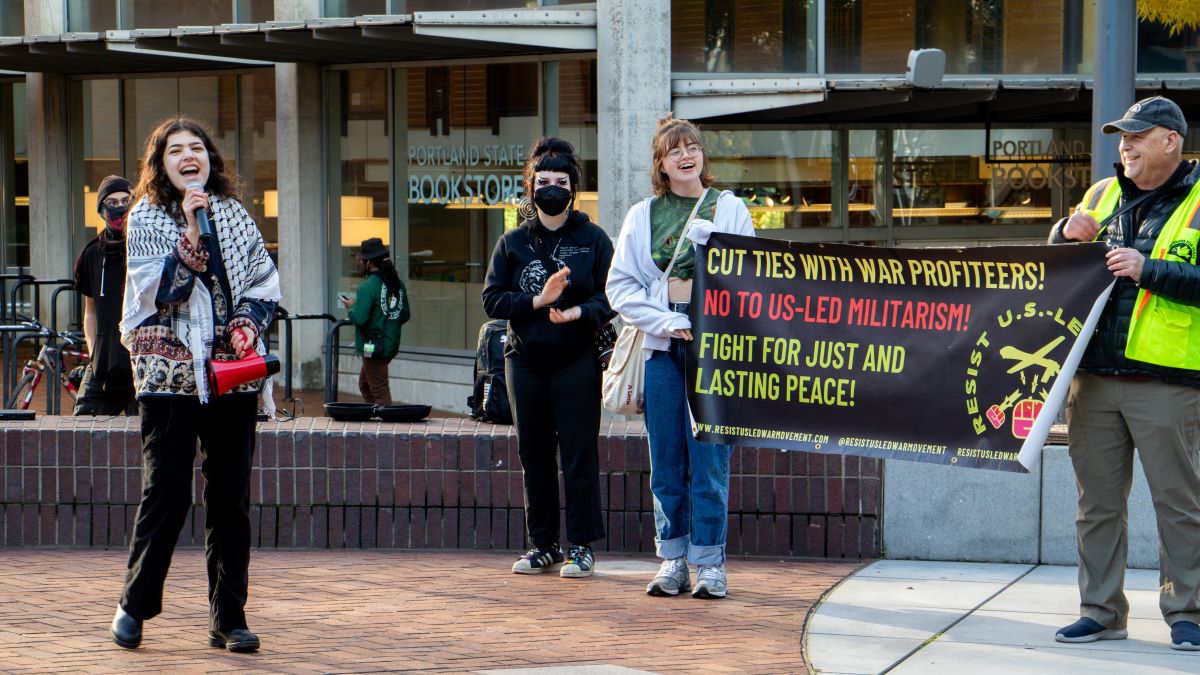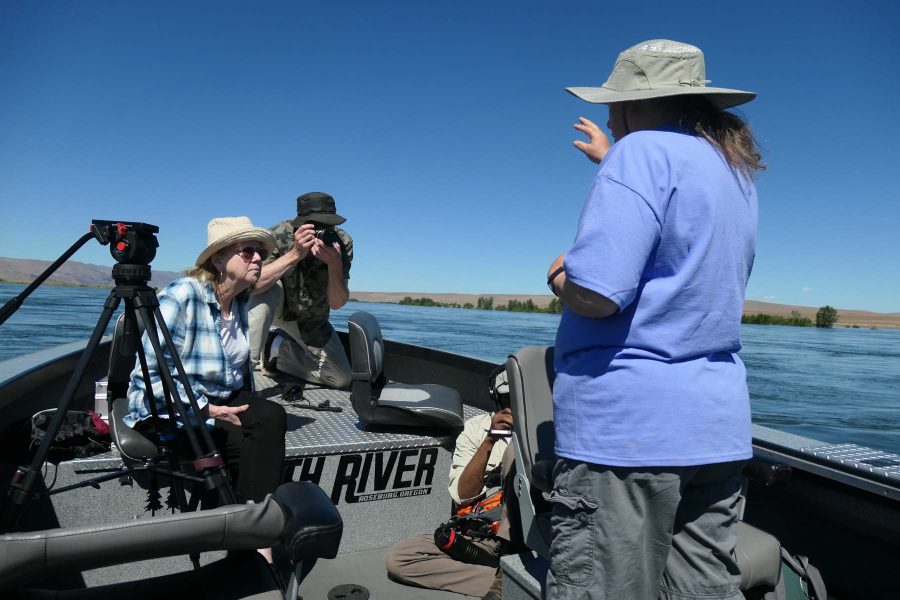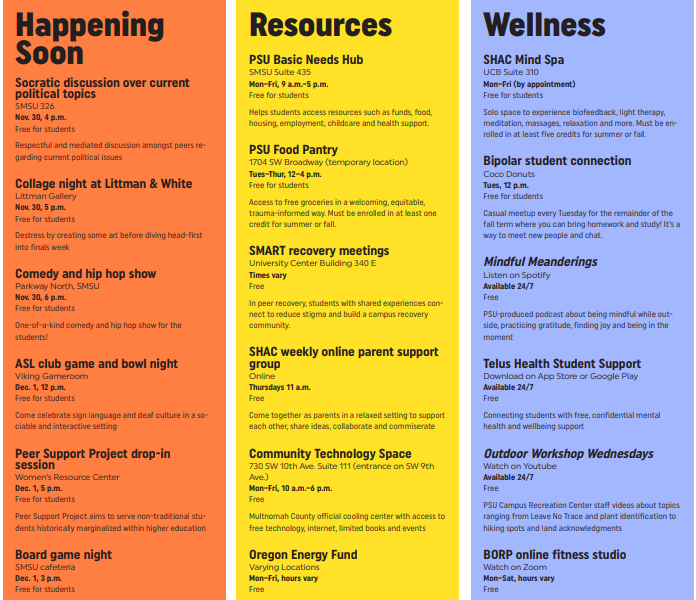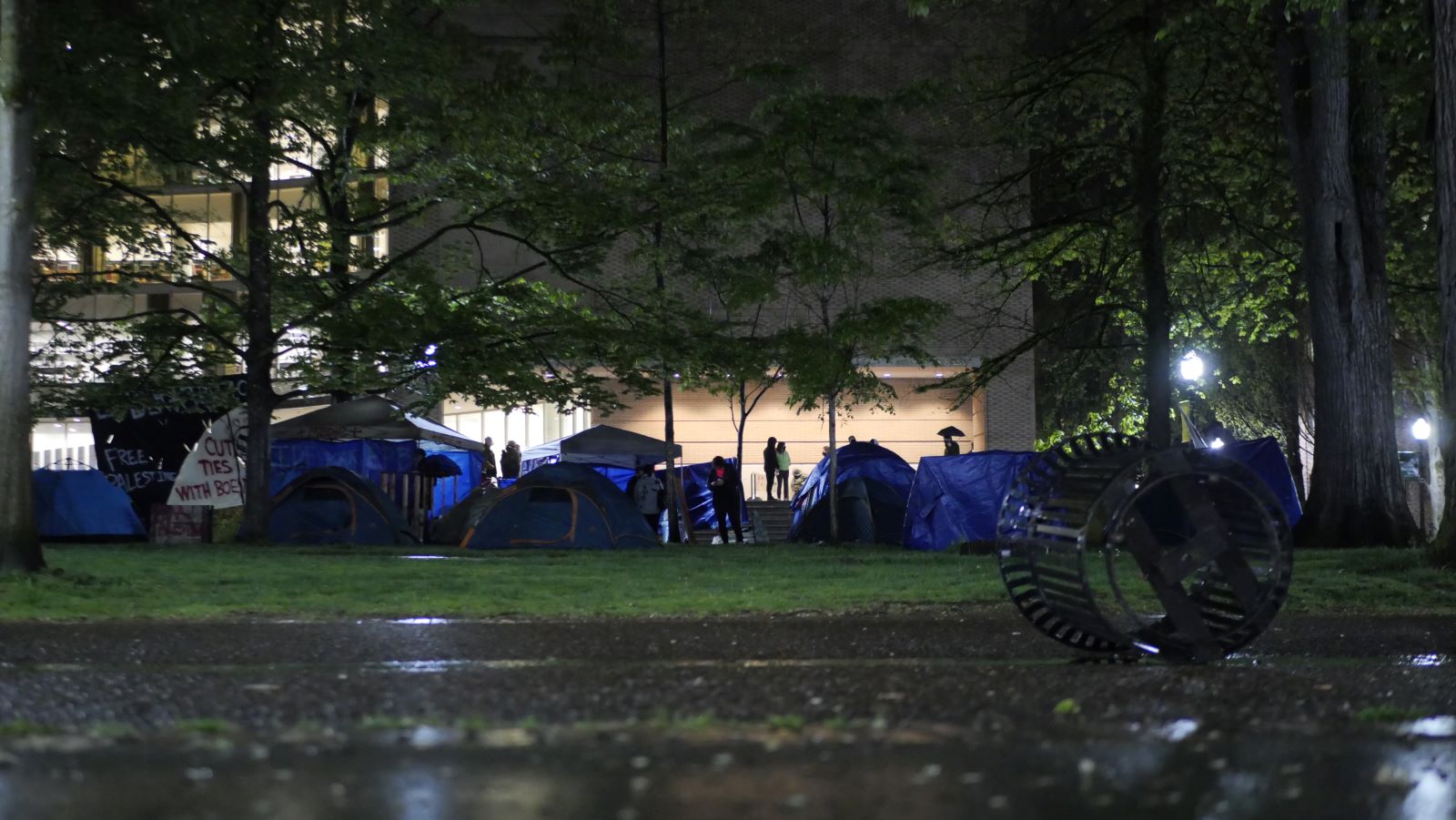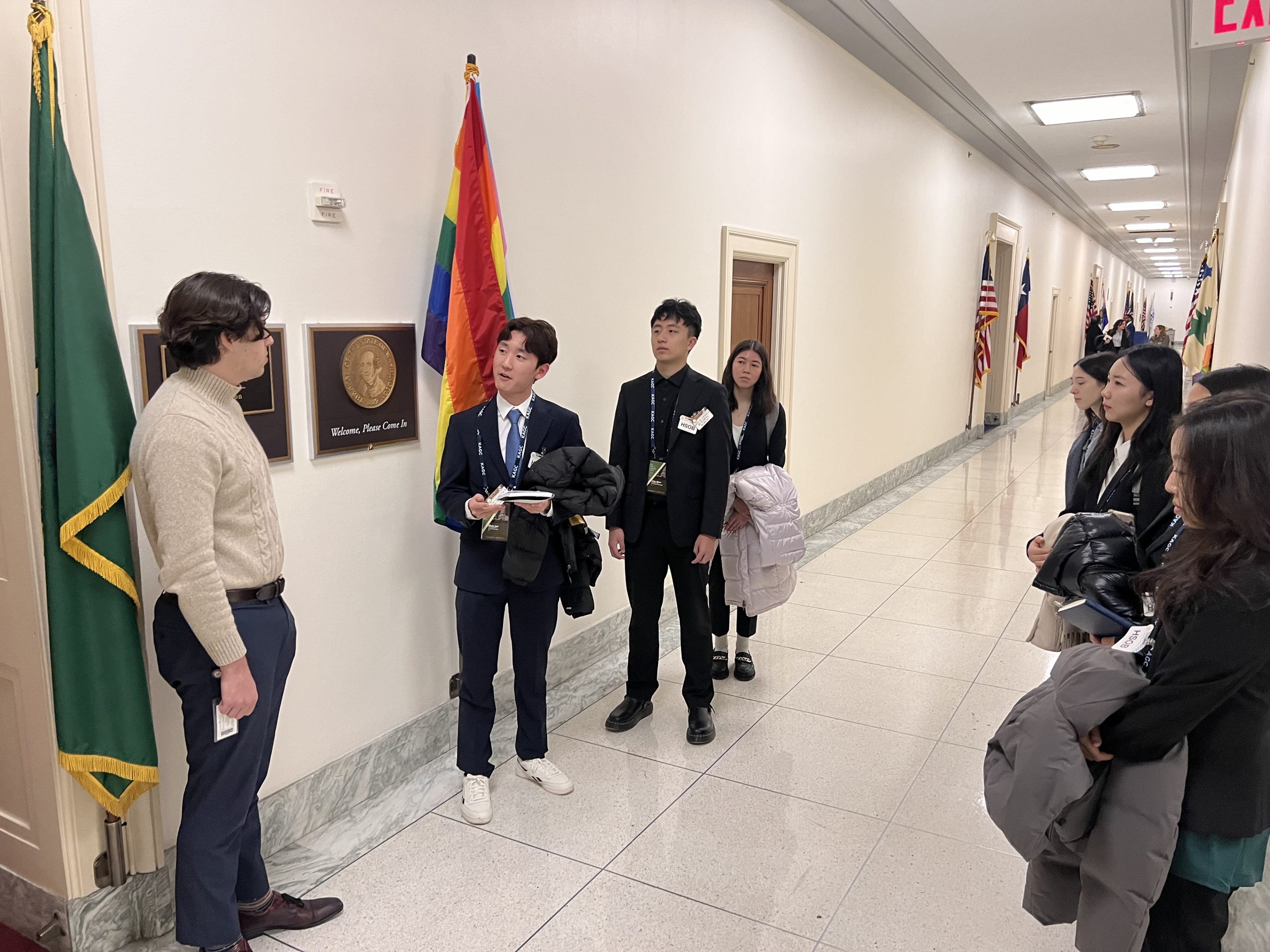A growing wave of student resistance against administration actions mirrors broader protests exposing United States military involvement. This involvement is not without profiting, benefiting both those seizing power and those peddling tools of domination. It is crucial to scrutinize Portland State’s association with Boeing—a war profiteer and lobbyist—and recognize its stark contradiction to the school’s professed ethos.
The recent rally for the Cut Ties with Boeing campaign gathered in the Urban Plaza. A flier handed out at the rally read, “PSU holds a ‘special recruiting and hiring relationship’ with Boeing, a major contributor to the PSU Foundation. U.S. documented drone strikes alone have killed over 2,000 civilians since 2004 in Afghanistan, Somalia, Pakistan, and Yemen. Boeing is a key provider of fighter jets and bombs to the Israeli military in its assault on Gaza. Take Action against PSU’s complicity in war crimes!”
As the rally started, it was filled with calls to action and chants, including “From Palestine to the Philippines, stop the U.S. war machine.” People spoke with a sense of collective action and solidarity, understanding that these struggles are intrinsically intertwined.
Various people, spanning different ages and demographics, gathered to attend the rally and hear speakers convey their message to an attentive audience. The primary objective was to raise awareness about the mutually beneficial relationship between Boeing and PSU. “PSU is one of only 13 Boeing supply chain focused universities, meaning that Boeing recruits PSU supply chain students every fall term,” stated the PSU global supply chain undergraduate program.
Several organizations organized the rally, including Students United for Palestinian Equal Rights and the Resist U.S.-Led War Movement. The Jewish Voice for Peace Portland also joined halfway through after they held their sit-in across town to support the cause.
The campus rallies and collective activism are powerful, as students actively participate and speak out, advocating not only for their justice but also for the justice of others. The school’s history of neglecting students and the campus community voices calling for cut ties with Boeing is an ongoing struggle for student-led cultural and anti-imperialist groups.
The rally was not only centered on Boeing’s funding to the university, but also raised concerns about the university providing students with opportunities to work for a company involved in war profiteering, potentially causing harm to individuals, including those from their home countries.
“At this rally, we had someone talk about the U.S.-Mexico border whose family actually was forced to migrate and nearly risked their lives coming through the border,” said Cody Urban, an organizer of the rally. “The border fence and the entire border apparatus of the U.S. is funded by Boeing. They give surveillance drones. They actually give the planes that [Immigration and Customs Enforcement (ICE)] uses to fly migrants away when they’re captured by ICE. So that’s a major point. There is also the Philippines. We had a speaker who talked about how Boeing gives attack helicopters and bombs to the Philippine government that acts on U.S. interests in the Asia Pacific, and that is killing people in the Philippine countryside.”
These influences—wielded by both the U.S. and Boeing—are utilized in overt wars, conflicts and aggressive forms of control. Various student groups are joining together in collective resistance against these influences.
Corporations like Boeing play essential and highly problematic roles in current conflicts with an incentive to sell their products and services. They have a bias towards the ongoing war machine as that is how they profit the most.
A corporation profiting from war will not work to end violence; it will only expand and encourage it. If we want peace and justice for all people, as it aligns with students and the community, PSU would need to cut ties with corporations that make money selling weapons of mass destruction.
When it comes to selling war, Boeing’s position, ideology, or intent don’t matter as long as someone pays. Does the school want to be aligned with those interests, or is it rather indifferent to both the funding source and the values upheld by the organizations it funnels students into?
Is money the only thing that matters? What about community and education? Or ‘serving the city’? How does making bombs serve the city?
Neoliberalism is the modern system of politics and economics of our current society, and it seeped into PSU like other schools, making decisions that cut student engagement and care if they are not profitable. It is one thing to be constrained to the conditions of a given system, but it is another to uphold and reify its power.
Rather than empowering students, numerous universities—PSU included—confine their students to specific tools, resources and spaces. There is an expectation that degrees must not only be earned but also purchased.
After graduating, students lose their previous capacity for protest, rallies and organization. When students push for change, the administration often opts to wait them out, a strategy that tends to be successful.
So far, the strategy has been effective with Disarm PSU, an organization predating the 2018 killing of Jason Washington. Despite the school’s assurance of unarmed patrols, armed patrols only took a few months to resume.
The strategy has also been effective with the Cut Ties with Boeing campaign, which has existed since at least 2016 when the student government Associated Students of PSU advocated for PSU to divest from Boeing.
Most students invest two to six years on campus, engaging in coursework and activism. Although the administration traditionally waits for movements to fizzle out, the current scenario suggests a resilience that might defy this expectation.
The struggle has been connected with the city more than ever as calls for ending occupations and wars are gaining traction at PSU and all over Portland—people have been demonstrating.
It financially makes sense to allocate limited attention to students and faculty, seeking support from wealthier donors, as there is a constraint on how much students alone can contribute.
The evidence lies in the school’s actions and proposals. Budget cuts have negatively affected student-led organizations and care facilities for students and faculty. Calls for a cost of living increase by adjunct faculty and now PSU staff were met with university barriers and needed mouths of negotiation and threats to strike for minimum action. In Portland, public schools advocate for decent care and safe environments while grappling with crumbling infrastructure.
Everyone should be aware of the ongoing struggles against settler colonialism, which was referred to in the rally to cut ties with Boeing. Though many people might think we are past the days of colonialism or things like that are not happening, it is time to realize that it only adapted with our changing societies. Settler colonialism played a significant role in the development of the U.S., and corporations profit from investing in its ongoing international continuation.
What is apparent is that there is money in controlling land, there is money in selling colonialist weapons and there is money in training students to sell those weapons. It is crucial to reflect on these considerations, foster solidarity networks and identify what is worth fighting for in these uneasy times.
Resistance is rising from actions all over our university and across the globe right now. Though these demonstrations at PSU have yet to be violently suppressed, the future is uncertain.

